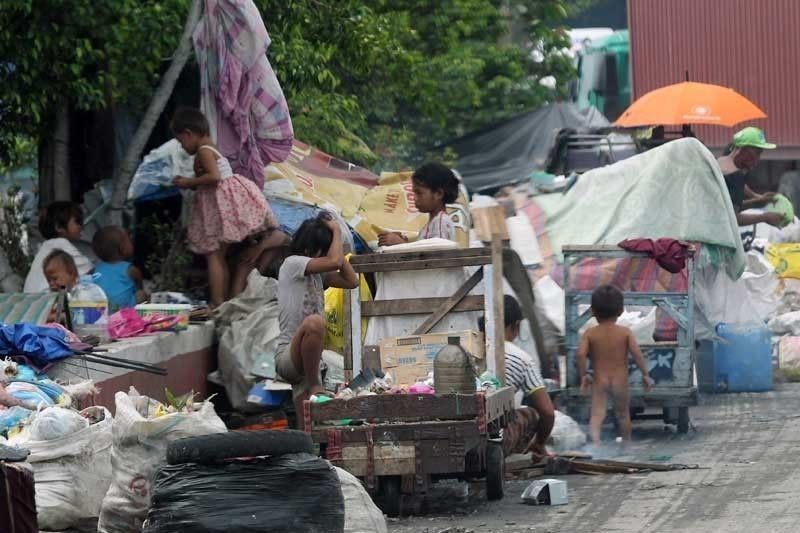Commentary: Corruption steals from the poor

Corruption refers to “the abuse of entrusted power for private gain. It can be classified as grand, petty and political, depending on the amounts of money lost and the sector where it occurs”.
The 2019 Corruption Perception Index revealed that “a staggering number of countries are showing little to no improvement in tackling corruption.” Using a scale from 0 to 100 (highly corrupt to very clean), the survey of 180 countries tells that 2/3 scored below 50/100 and the average score registered at 43/100 (Transparency International, 2020).
Specifically, the Philippines currently ranks 113th and scored 34, which is way below the average score of 45 among Asia Pacific countries and that of the general average. Alongside other Southeast Asian countries, the Philippines’ performance was bested by Thailand (101), Vietnam (96), Indonesia (85) and Malaysia (51).
In figures, Deputy Ombudsman Cyril Ramos estimated that the government is losing P700 billion per year. More or less, this amount constitutes 20% of the total annual government appropriations.
Given the abovementioned data, one should wonder about two things: What is being done to arrest and curb corruption? What are the social, political and economic impacts of corruption?
Treading into its fourth year, the program and promise of making government more functional has indeed proven to be a gargantuan task for the Duterte administration. By now, the administration’s political and economic advisers should have realized that the war against corruption goes well beyond the act of destroying smuggled luxury cars and firing public officials. While these acts of strong-willed leadership are commendable, accompanying institutional reforms should be put into place.
Systemic corruption necessitates programmatic actions and implementation of existing laws and policies, which provide for the strict observance of ethics in public service.
Roughly two years remaining in its term, the consistent popularity and perceived broad support of President Rodrigo Duterte would still be an effective weapon to launch far-reaching anti-corruption reforms.
His strong leadership could propel a thorough execution of the following laws: Article XI (Accountability of Public Officials) of the 1987 Philippine Constitution, RA 6713 or the “Code of Conduct and Ethical Standards for Public Officials and Employees” (1989), RA 7080 or “An Act Defining and Penalizing the Crime of Plunder” (1991), RA 9160 or the “Anti-Money Laundering Act of 2001, and RA 9485 or the “Anti-Red Tape Act of 2007.”
Commonsensically, the impact of corruption on the economic and social lives of the population is deprivation.
The astounding figure of P700 billion instead of being divested and stolen could have been placed into good use and invested in providing for economic production such as agriculture and manufacturing; for aid, social welfare, the environment, and education among others. Funds flowing out of the public sector that are in effect people’s taxes are hi-jacked for personal gains.
More concretely, the waste caused by corruption could have been used to fund the operations of several departments that are in dire need of additional budget, i.e. Department of Agriculture, Department of Education, and the Department of Health among others.
As to the landmark legislations of government, corrupted funds could have been provided for the speedy implementation of measures providing a universal health care, a free tertiary education, and free irrigation services; notwithstanding the need for environmental protection and disaster resilience.
Most importantly, the poverty dimension about the impact of corruption is exacerbated. As there are many causes of poverty, corruption has historically been labeled as one of the major culprits. Corruption steals from the poor as there are less resources available for public services and development programs.
The public perception of Filipinos about poverty in 2019 accentuates the relationship of corruption to poverty. For instance, the Fourth Quarter Social Weather Survey (December 13-16) revealed that “54% of the families found themselves as mahirap or poor.” This finding represents a significant quarterly increase of 12 percentage points, compared to the 42% during the third quarter of the year under consideration.
Further, the said percentage of self-rated poverty is also the highest since the 55% in September 2014. The upsurge could also be witnessed across geographical areas?up by 16% in Metro Manila, 13% in Balance Luzon, 11% in Mindanao, and 8% in the Visayas.
For the PulseAsia survey (Dec. 3 to 8, 2019), the four top urgent personal concerns for the Filipinos are: “to stay healthy and avoid illnesses” (61%); “to finish schooling/provide schooling for our children” (49%); “to have a secure/well-paying job or source of income” (46%) and “at least to be able to have enough to eat every day” (43%).
One can plainly see that these personal concerns directly and/or indirectly relate to poverty. And for the most urgent national concerns, “reducing poverty of many Filipinos” ranked fourth, garnering 32%.
By and large, if the population feels and sees that public services are available and affordable, will their perception about poverty vary significantly via quarterly or even yearly basis?
Another devastating impact pertains to the weakening of institutions and the perversion of governance. Through corruption, public trust is lost and political institutions are engulfed by a systemic rust.
Institutions weakened by corruption would obviously hinder democratic socialization and inclusion. In turn, corrupt institutions breed indolent and apathetic citizenship that hampers nation-building.
More so, corruption completely undermines the values of right governance or tamang pamamahala. And in the process, the democratic principles of transparency, accountability, responsive services, and rule of law are eschewed altogether.
Jaime Jimenez is deputy executive director for Research of think tank Stratbase ADR Institute.
- Latest
























